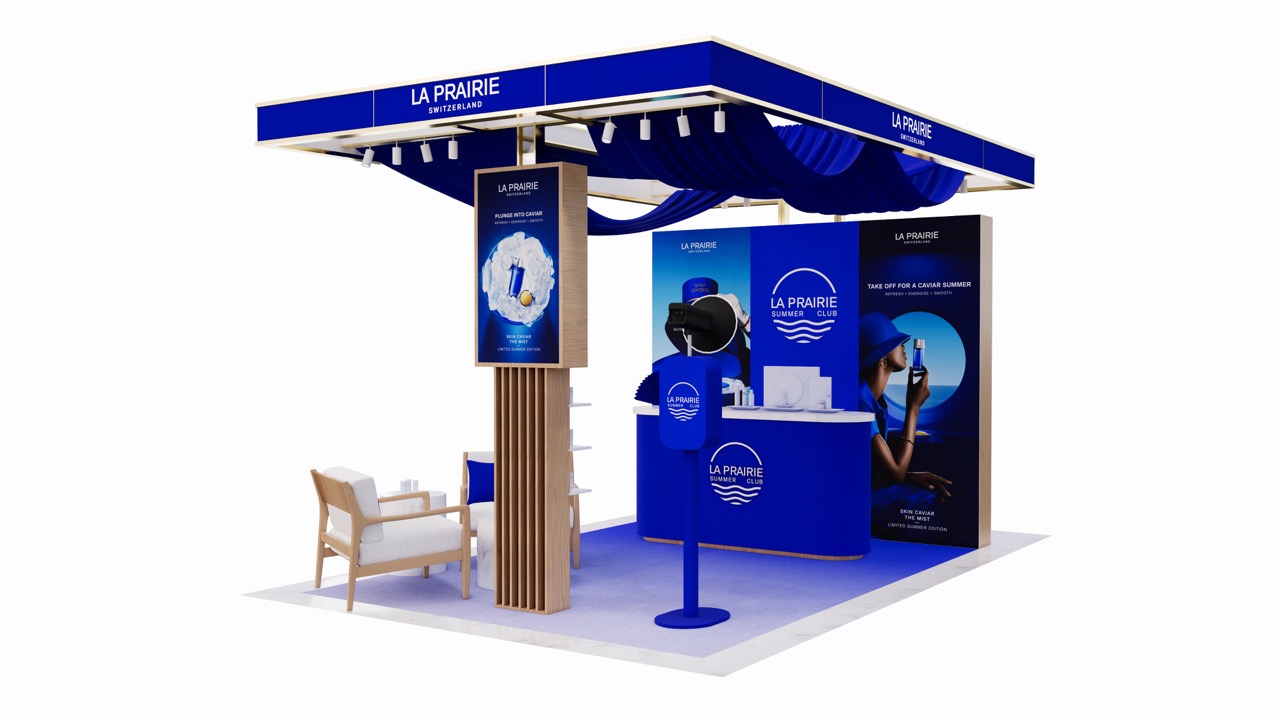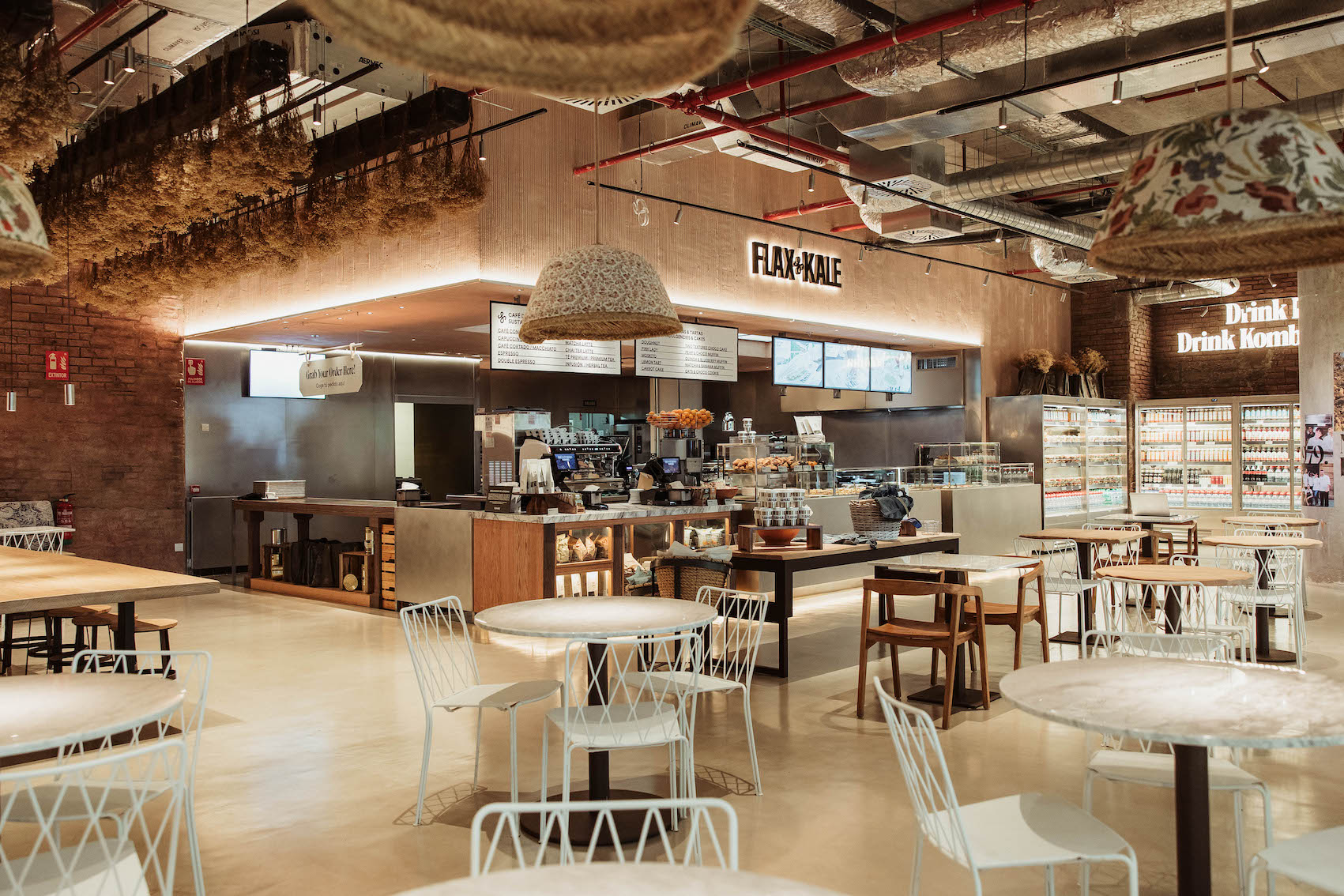CHINA. A crackdown on returning Chinese daigou shoppers at Mainland China’s airports after this month’s Golden Week holiday (1-7 October) has raised serious questions about the future of a sector that has buoyed Asia Pacific travel retail in recent times.
Daigou (also known as ‘shuttle traders’ in South Korea) buy goods abroad (predominantly cosmetics but also a wide range of accessories and other premium and luxury goods, as well as commodity items such as milk powder) and resell them (often through well-organised networks) on the Mainland.
The daigou trade was directly responsible for South Korea’s otherwise contradictory +20.7% rise in duty free sales last year despite a -48.3% slump in Chinese visitors (who accounted for 46.8% of arrivals in 2016 and a much higher percentage of duty free spending).
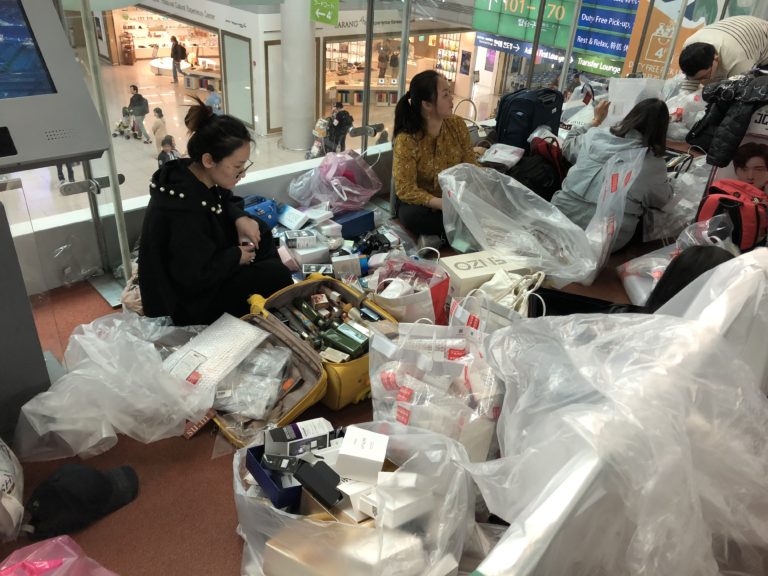
“According to China National Radio, approximately 100 people were arrested after arriving in Shanghai Pudong Airport on one flight alone,” the report noted.

Another image showed a WeChat user brandishing a receipt for a fine of CNY17,000 (US$2,475) at Pudong, after Customs inspected her luggage and found 31 cosmetics products.
Chinese travellers returning from overseas have an individual allowance of CNY5,000 (US$728) worth of duty free goods.

CGTN noted that the current crackdown comes ahead of China’s new e-commerce law, which takes effect on 1 January 2019. The revamped regulations are designed to both protect consumers and “maintain the market order”, the report noted. The law, CTGN pointed out, will apply not only to online shopping platforms but also to those e-commerce operators selling goods via social networks, including WeChat [a key platform for many daigou sellers].
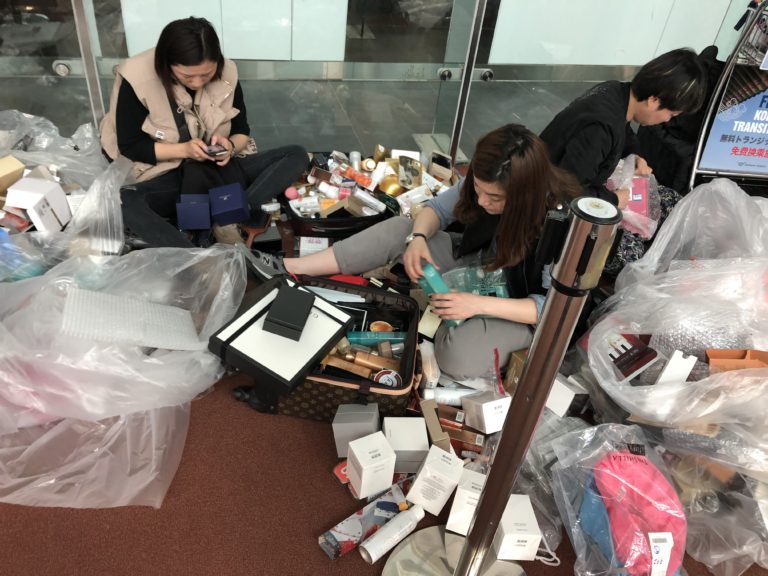
The law will also crack down on the sale of fake goods, another factor in the daigou phenomenon of recent years [The Moodie Davitt Report believes that legitimate travel retailers should give greater emphasis to the guaranteed authenticity of goods that they offer -Ed].
The Financial Times (FT) also reported last Friday that social media posts of emptied bags and long customs queues at Pudong Airport had spurred fears of an intensified state crackdown on daigou trading. It noted that the share prices of Japanese cosmetics giants Shiseido and Kao had slumped at the end of last week, as had those of Matsumoto Kiyoshi, Japan’s biggest drugstore, whose cosmetics and beauty range is very popular with tourists. Other companies to have been hit include Korean beauty giant Amorepacific.
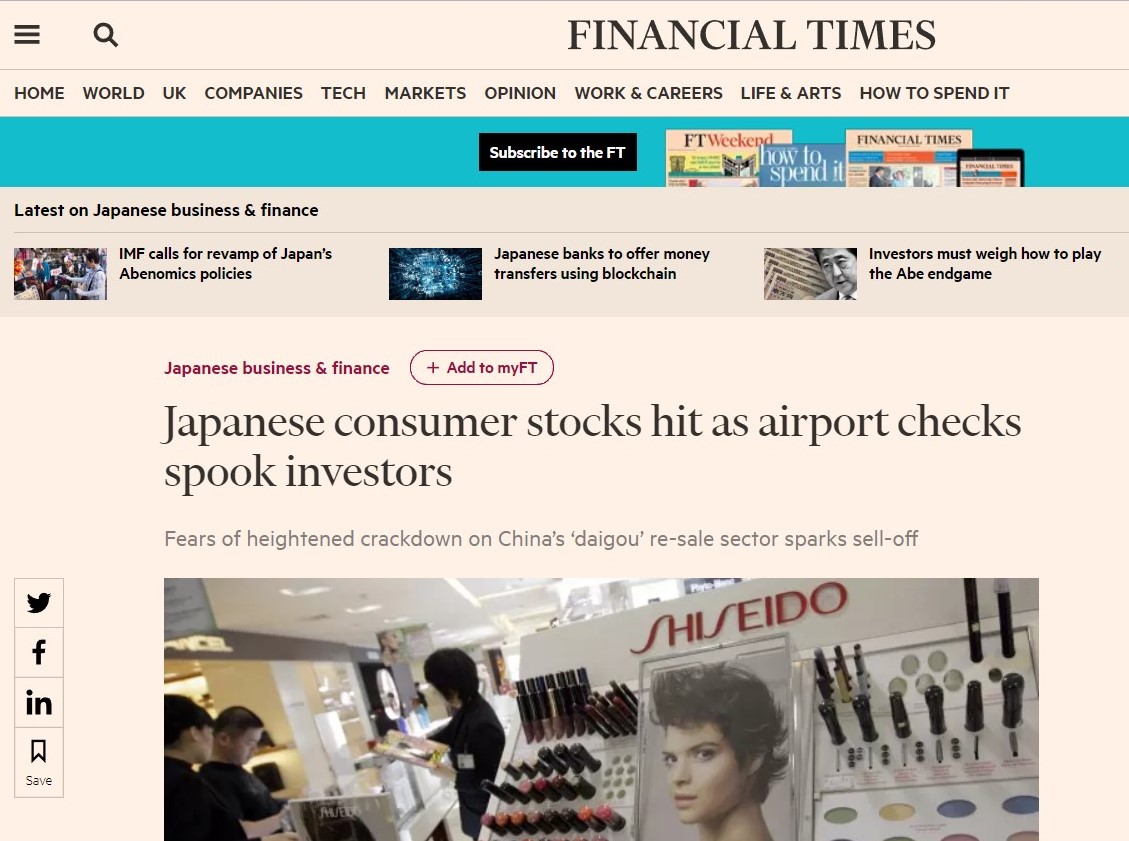
The FT noted: “The images of Chinese tourists returning from overseas during this week’s Golden Week holiday appeared to show full luggage searches for tour groups suspected of exceeding their personal allowances for imported goods. The airport checks revived fears that Beijing might introduce a tax on duty free products.”
Its report quoted Ms Guo, a daigou shopper from Nanjing who regularly visits Taipei to buy goods for re-sale. “We haven’t had any extreme cases yet in our network, but we fear that the days of daigou are numbered,” she told the FT.
News agency Bloomberg carried a similar story, noting, “Shares of the fashion and cosmetics giants plunged as videos of border guards looking for imports over the duty free allowance of 5,000 yuan (US$727) spread on the web, adding to jitters stemming from a trade war with the US. Meanwhile, a traveller’s customs receipt that’s being shared widely on social media shows a customs levy of 60 percent on some cosmetics.”

Bloomberg reported that daigou imports from South Korea – which may represent as much as 1.5% of global luxury sales – could have been the main target of the crackdown.
The agency quoted Exane BNP Paribas analyst Luca Solca, who said in an e-mail that tightened border enforcement “could be phase 2 of China’s efforts to repatriate consumer spending of its citizens”.
The crackdown has particular repercussions for beauty houses. Bloomberg also quoted Jefferies Equity Analyst Stephanie Wissink, who wrote: “Beauty is the No. 1 purchased category by outbound Chinese travellers worldwide, as more than 50 percent make beauty purchases while outside of China.”










